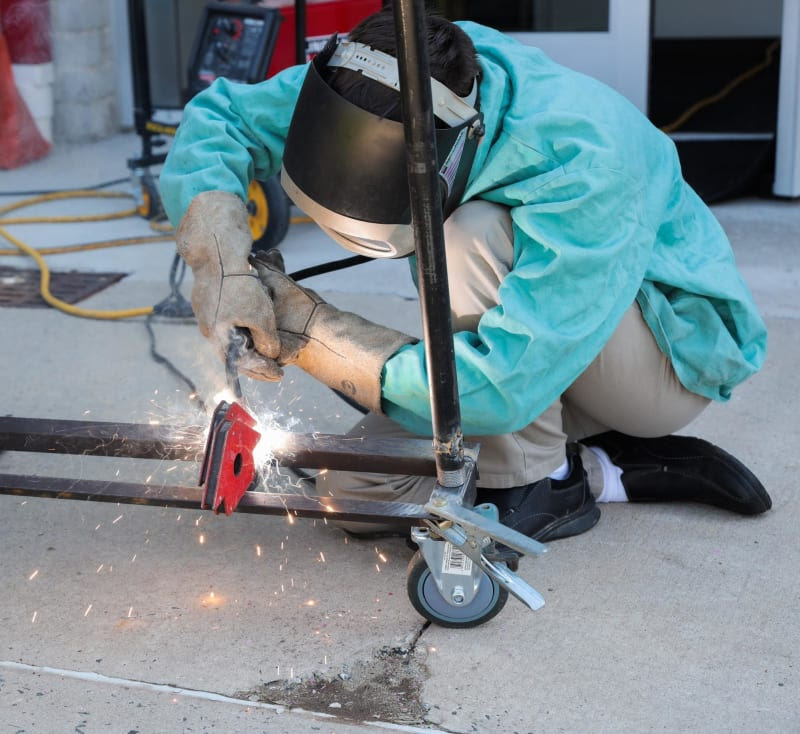“Water filtration systems, recycling, concrete pouring, paper origami, the electrical grid, electric cars. The principles of engineering are happening around us every day and oftentimes we take them for granted or we may not even realize they exist,” said Chris Cooper, faculty member in the Technology and Engineering Department at The Hun School in Princeton.
Which is why students in Cooper’s Engineering Design class spend time each semester taking a deep dive into the core principles of engineering and discovering where and how they exist in student’s everyday lives.
In this classroom, the students’ interests determine the trajectory of the course and when students expressed an interest in exploring electric cars, the Green Movement, and alternative means of transportation, Cooper decided that the best way to put their knowledge to the test was to create an electric scooter from scratch.
“There are no DIY instructions for making an electric scooter on the internet, so we spent a lot of time in the brainstorming phase,” he said. “It’s a lot of trial and error but that is the fun part about engineering.”
After the class decided how the frame of the scooter would be constructed, students welded the pieces together to create the base of the scooter and then attached the wheels. Next, students will tackle the electrical component of the scooter which will include learning about direct current circuits and the basics of battery operated electronics.
Cooper notes that while for most students the engineering is the most exciting part of the process, the design element is just as important.
“A very important part of engineering is the aesthetic and function of the project,” he said. “As an engineer, you have to be equally concerned with how it works and how it looks. You have to make a product that looks appealing that makes people want to use or buy it.”
Madeleine Perry, Class of 2021, notes that engineering has taught her the balance between always being prepared and being able to improvise and think on the spot.
“It’s the perfect example to show how you should always have a plan in mind but still be prepared for things to go wrong,” she said. “Also, even in something as complex as engineering, it’s okay to make mistakes because mistakes often lead to an improved design.”
Not only are students creating tangible products but they are learning some valuable skills along the way.
Cooper explains that his main goal as the teacher is to show students all of the things that they are capable of.
“I tell students all of the time that if it has been made, they can make it too,” he said. “Through their craftsmanship and skill they have the ability to control their world. If something needs to be fixed or made they can do it themselves.”
- This article was submitted by The Hun School in Princeton.

